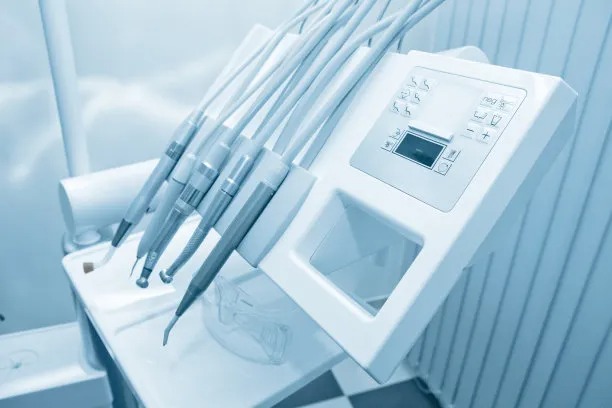Essential Guidelines to Safeguard Your Health During Root Canal Treatment for Optimal Recovery and Comfort
Summary: Undergoing a root canal treatment can be daunting for many patients, but there are essential guidelines that can help safeguard your health, optimize recovery, and enhance comfort during the process. This article outlines four main aspects that patients should focus on: preparing for the procedure, managing post-treatment care, maintaining good oral hygiene, and knowing when to seek further professional help. By following these guidelines, patients can alleviate anxiety, minimize discomfort, and ensure a smoother recovery experience, leading to better overall outcomes.
1. Preparing for the Procedure Effectively

Preparation is crucial for any medical treatment, and a root canal procedure is no exception. Before the appointment, ensure that you have a clear understanding of the procedure, which often involves the removal of infected or damaged pulp from the tooth. Discuss any concerns with your dentist to alleviate anxiety and ask about sedation options if necessary to ensure comfort during treatment.
Another important aspect of preparation includes fasting if youve opted for sedation. Typically, if you’ll be having sedation dentistry, your dentist will provide specific instructions on what you can eat or drink prior to your appointment. Following these guidelines will help reduce the risk of nausea and other adverse effects post-procedure.
Lastly, arranging a follow-up plan is vital. Coordinate with a friend or family member to drive you home after treatment. This is particularly important if sedation is involved, as it can impair your ability to drive. Having someone support you on the day of the procedure can also help maintain your emotional well-being.
2. Managing Post-Treatment Care Efficiently
After the root canal, managing post-treatment care effectively is essential for recovery. First, it’s normal for the treated area to feel sensitive or sore for a few days. Over-the-counter pain medications can alleviate discomfort, but ensure these are taken as directed to minimize side effects.
Ice packs can also be beneficial to reduce swelling and numb the area after the procedure. Applying ice for 15-20 minutes on and off can provide noticeable relief. Avoid placing ice directly on the skin; instead, wrap it in a cloth to prevent frostbite.
It is essential to stick to soft foods for the first few days post-treatment. Foods such as yogurt, mashed potatoes, and smoothies can help minimize discomfort while ensuring you receive adequate nutrition. Additionally, staying hydrated is crucial, so drink plenty of water throughout your recovery.
3. Maintaining Good Oral Hygiene Practices
Maintaining good oral hygiene is vital after a root canal treatment to promote healing and prevent further issues. Gently brushing your teeth twice a day and flossing daily is encouraged, but take care to avoid the treated area as it heals. Ideally, your dentist will provide specific instructions regarding your oral care routine during recovery.
Using an antibacterial mouthwash can also aid in reducing bacteria in the mouth, providing an extra layer of protection. However, this should not replace your normal brushing and flossing routine but rather complement it during your recovery period.
Regular follow-ups with your dentist are vital in ensuring that your tooth is healing properly. These appointments allow for assessment and timely intervention if any complications arise. Following your dentist’s guidance about the best oral care products is also important for promoting optimal healing.
4. Knowing When to Seek Further Help
Recognizing signs of complications is crucial for safeguarding your dental health after a root canal. Should you experience excessive pain, prolonged swelling, or fever, it is important to seek professional attention promptly. These symptoms may indicate an infection or other issues that require immediate attention.
Pay attention to the treated tooth and surrounding areas; if you notice any changes, such as increased sensitivity or discharge, do not hesitate to contact your dentist. Keeping a record of your symptoms can help your dentist diagnose potential problems effectively.
Moreover, don’t underestimate the importance of emotional well-being. If anxiety or stress related to the treatment persists, consider discussing this with your healthcare provider. They can offer additional resources to improve your mental health during recovery.
Summary:
In conclusion, undergoing a root canal treatment doesn’t have to be a source of stress if you adhere to essential guidelines. By adequately preparing for the procedure, managing post-treatment care, maintaining excellent oral hygiene, and knowing when to seek further assistance, you can ensure an optimal recovery experience with minimal discomfort.
This article is compiled by Vickong Dental and the content is for reference only.



